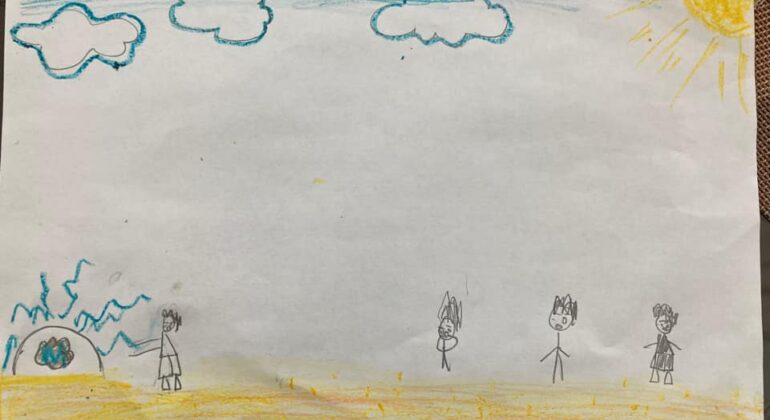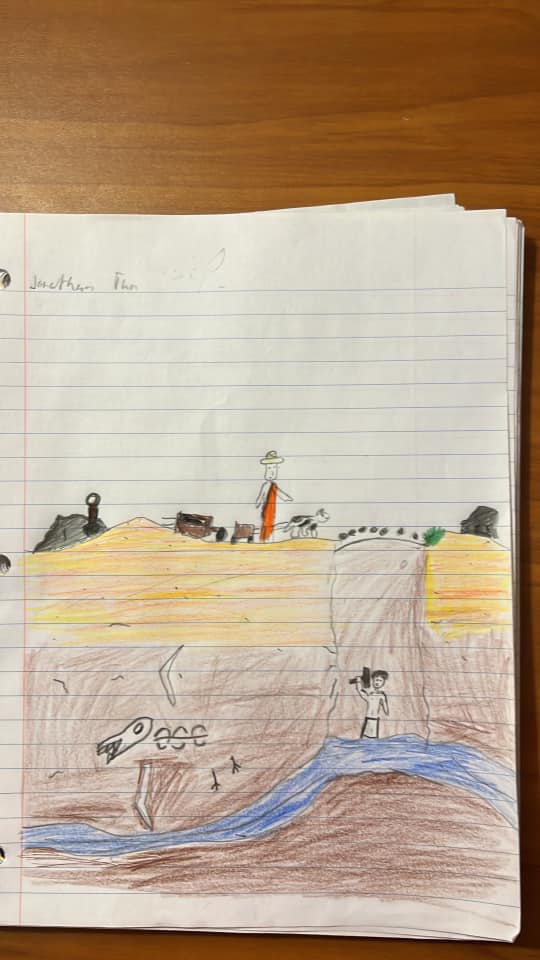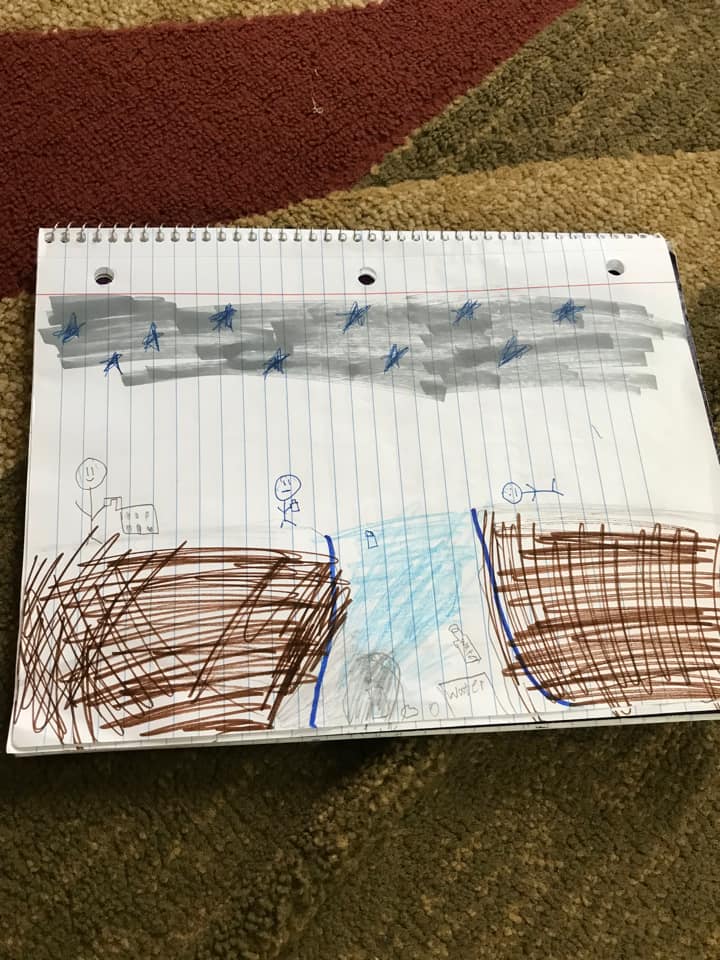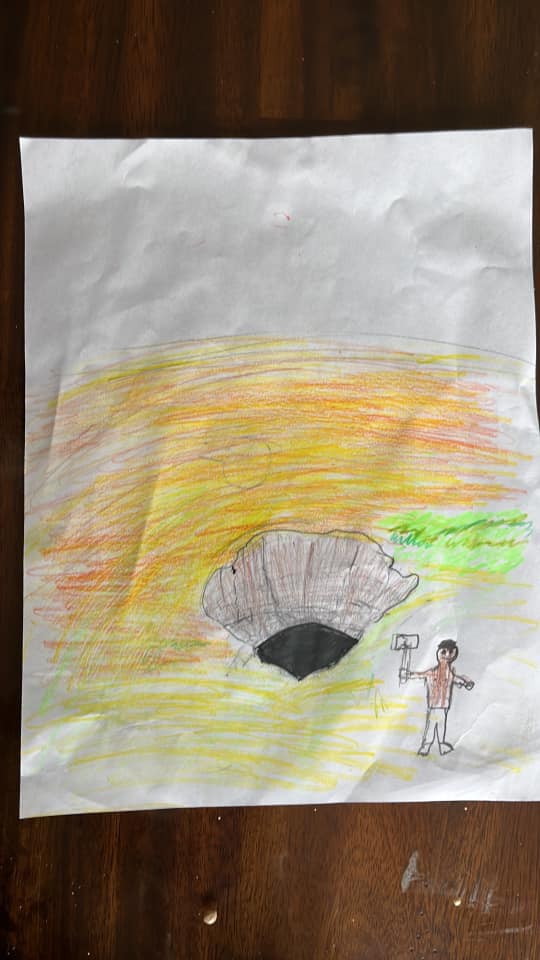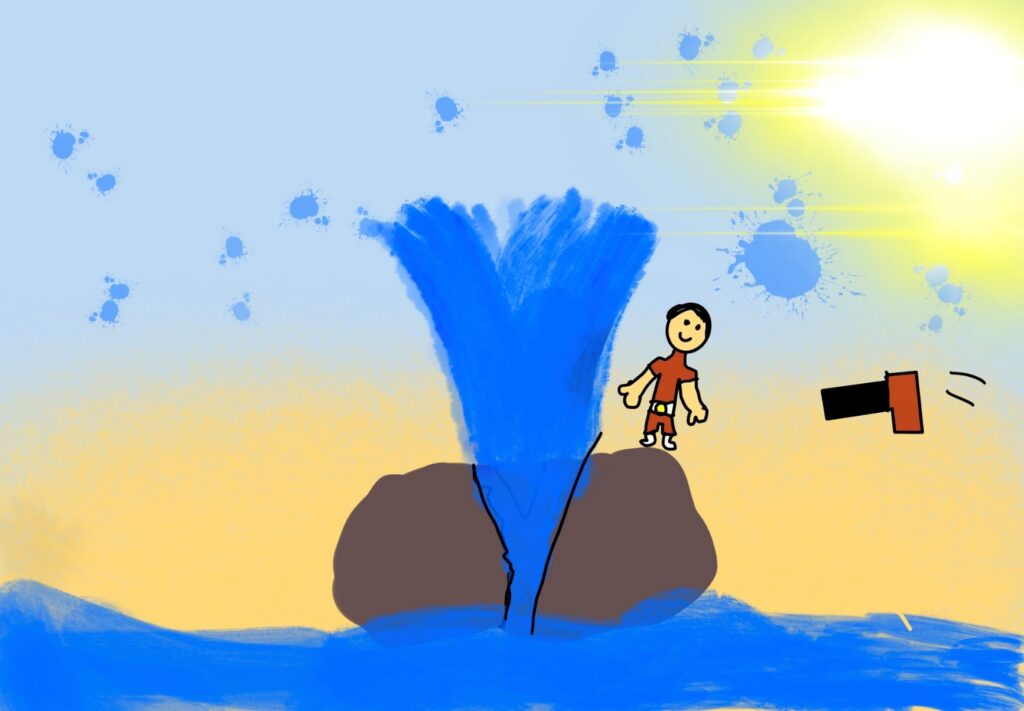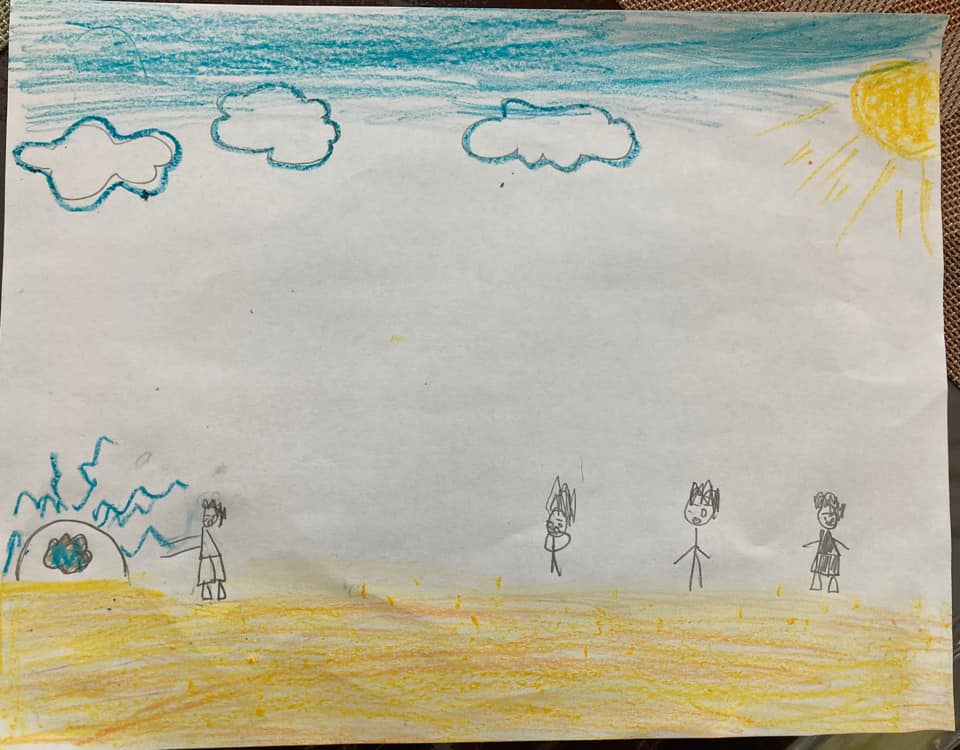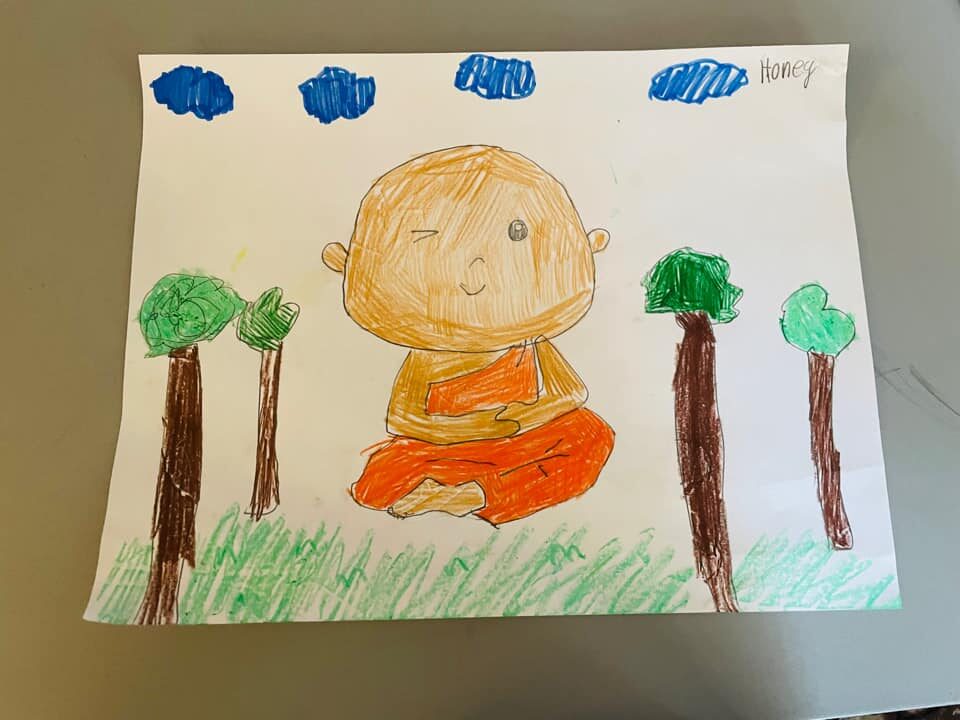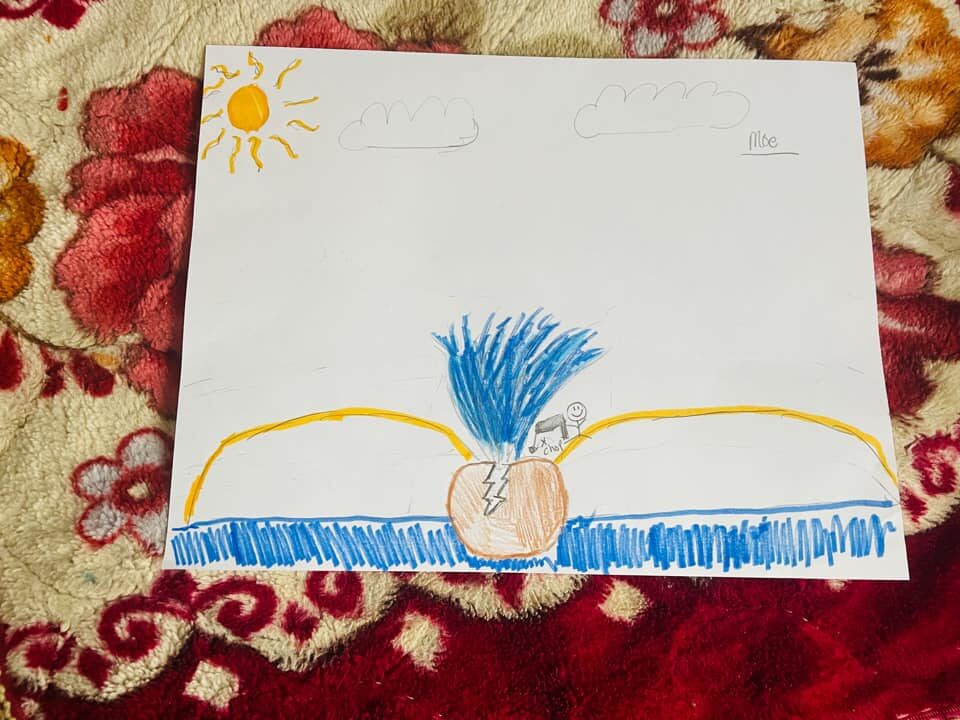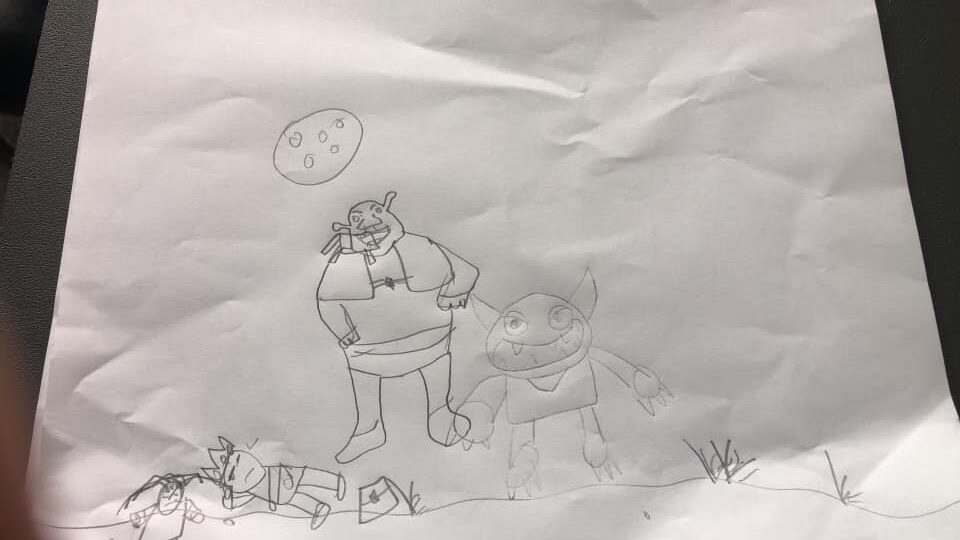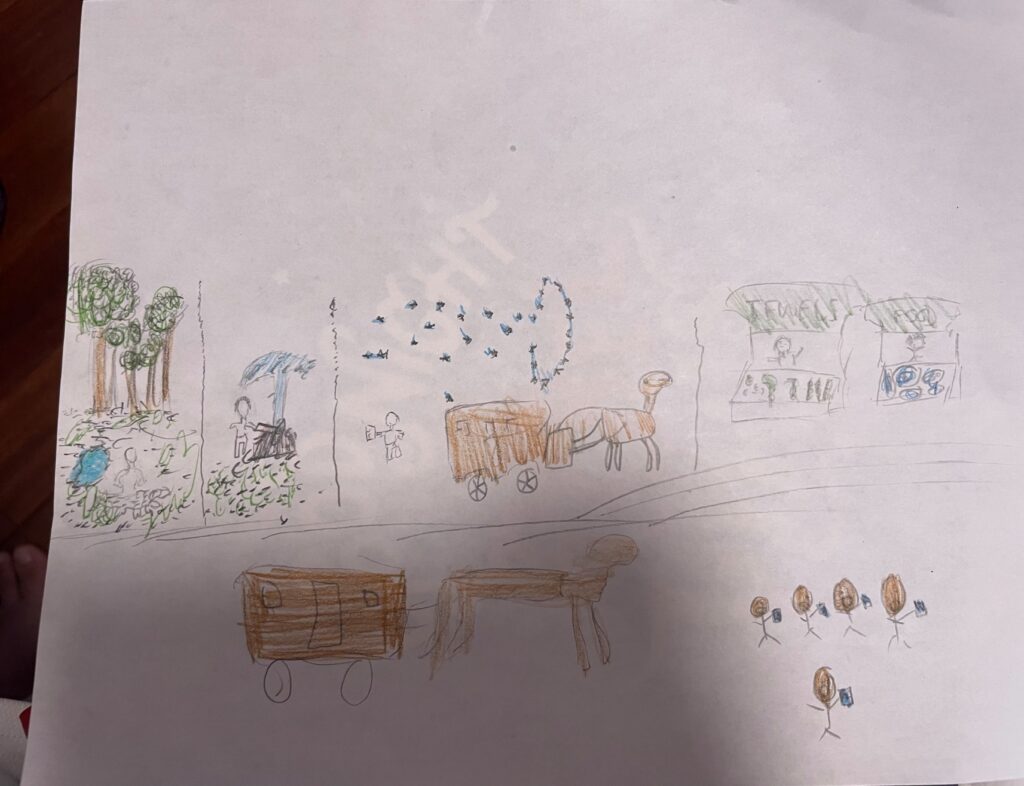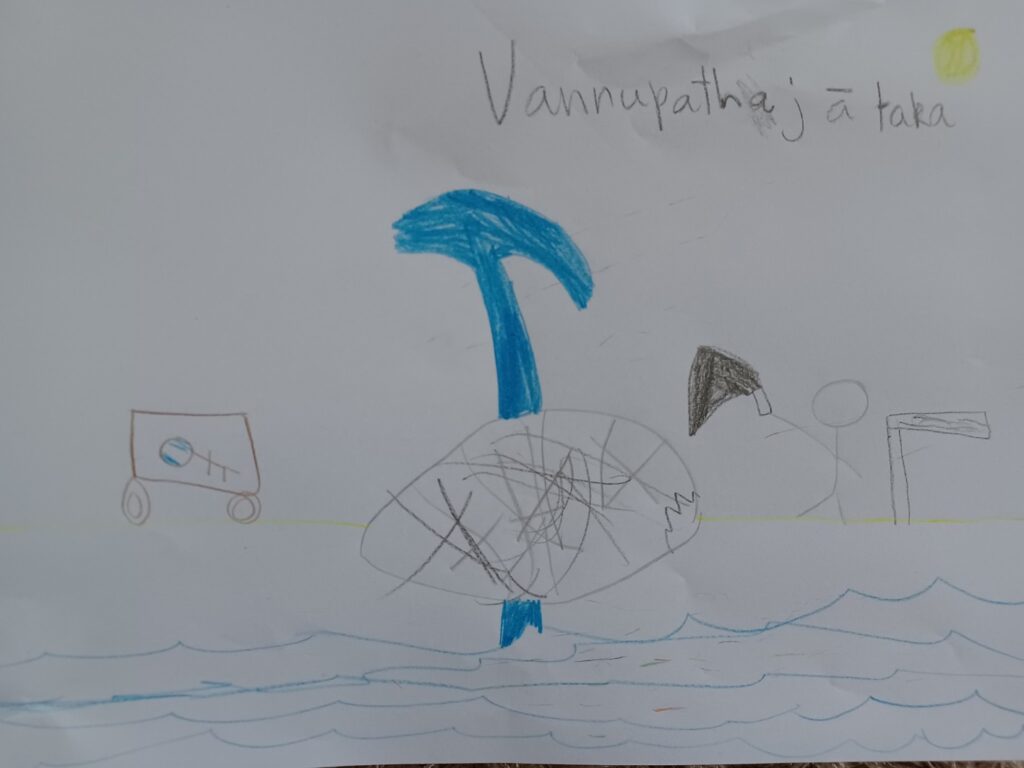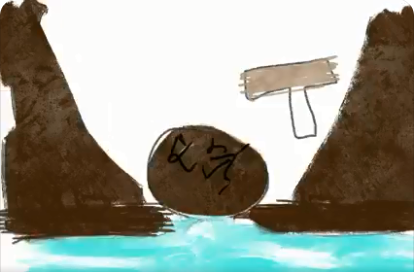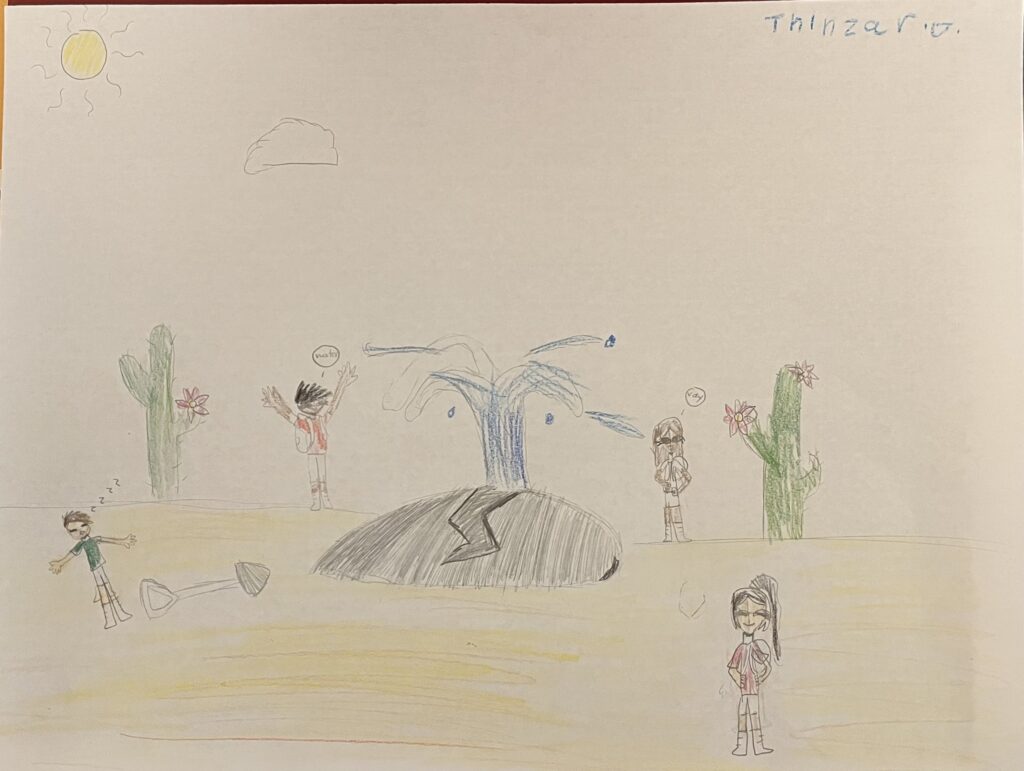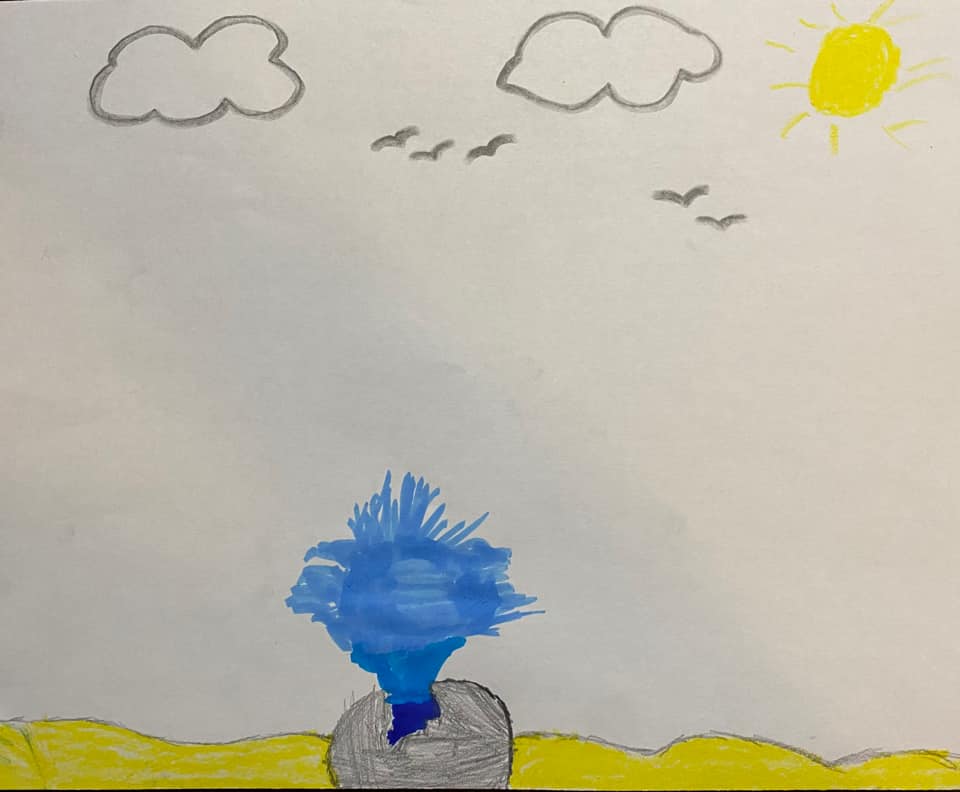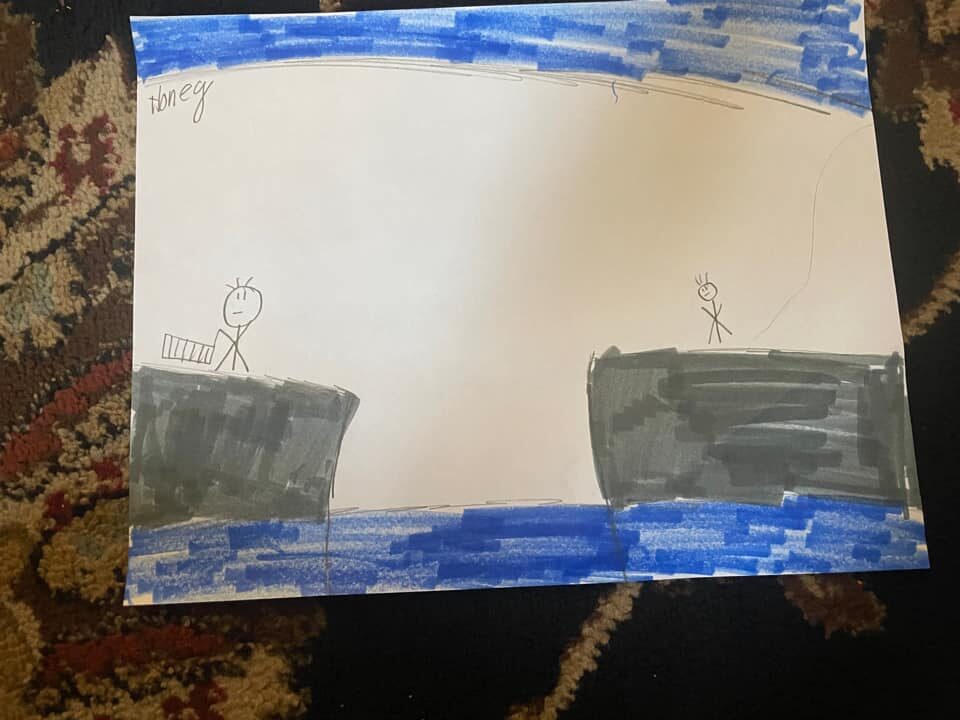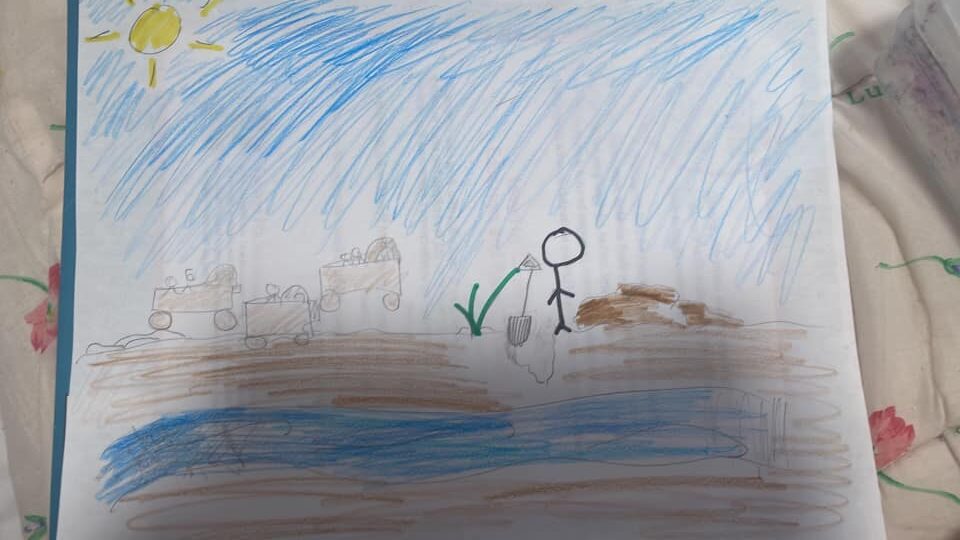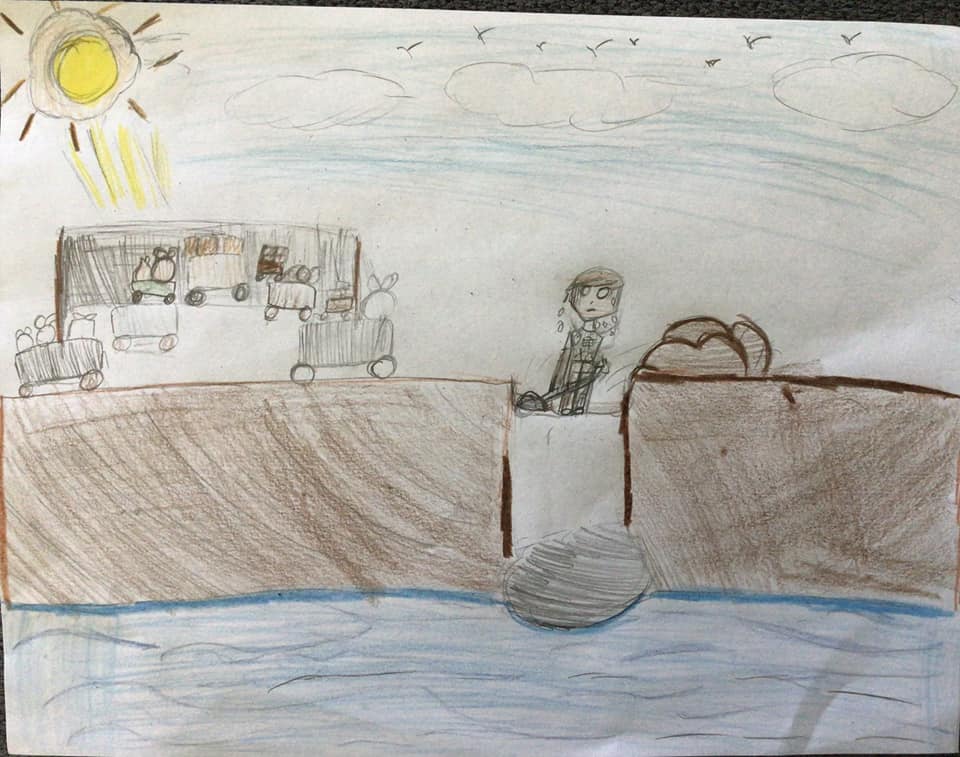/During the Buddha’s life, one young man heard the Buddha’s Teachings and ordained as a monk. He then received instruction for meditation and went to meditate alone in the forest. However, even after 3 months of meditating he did not achieve anything, so he returned to the monastery with the idea he will disrobe (become a lay person). His friends when they learned his plan took him to the Buddha. The Buddha then encouraged the monk by reminding the monk of the perseverance in the monk’s past life, when the monk helped men and oxen get water in a sandy desert and made them all happy./
In the past when Brahmadatta was king of [the country] Benares in [the city] Kāsi the Bodhisatta was born into a trader’s family. When he was grown up, he used to travel about trading with 500 carts. On one occasion he came to a sandy wilderness seven hundred miles across, the sand of which was so fine that, when grasped, it slipped through the fingers of the closed fist. As soon as the sun got up, it grew as hot as a bed of charcoal-embers and nobody could walk upon it. Accordingly, those traversing it used to take firewood, water, oil, rice and so forth on their carts, and only travelled by night. At dawn they used to range their carts in a circle to form a coral, with an awning spread [a canopy made of canvas to shelter people] overhead, and after an early meal used to sit in the shade all the day long. When the sun went down, they had their evening meal; and, so soon as the ground became cool, they used to yoke their carts and move forward. Travelling on this desert was like voyaging over the sea; a ‘desert-pilot,’ as he was called, had to convoy [guide] them over by knowledge of the stars. And this was the way in which our merchant was now travelling that wilderness.
When he had only some ten more miles before him, he thought to himself, “Tonight will see us out of this sandy wilderness.” So, after they had had their supper, he ordered the wood and water to be thrown away, and yoking his carts, set out on the road. In the front cart sat the pilot upon a couch looking up to the stars in the heavens and directing the course thereby. But so long had he been without sleep that he was tired out and fell asleep, with the result that he did not mark that the oxen had turned round and were retracing their steps. All night the oxen kept on their way, but at dawn the pilot woke up, and, observing the disposition of the stars overhead, shouted out, “Turn the carts round! Turn the carts round!” And as they turned the carts round and were forming them into line, the day broke. “Why this is where we camped yesterday,” cried the people of the caravan. “All our wood and water is gone, and we are lost.” So saying, they unyoked their carts and made a coral and spread the awning overhead; then each man flung himself down in despair beneath his own cart.
Thought the Bodhisatta to himself, “If I give in, every single one will perish.” So he ranged to and fro [moved about aimlessly] while it was still early and cool, until he came on a clump of kusa grass. “This grass,” he thought, “can only have grown up here thanks to the presence of water underneath.” So he ordered a spade to be brought and a hole to be dug at that spot. Ninety feet down they dug, till at that depth the spade struck on a rock, and everybody lost heart. But the Bodhisatta, feeling sure there must be water under that rock, descended into the hole and took his stand upon the rock. Stooping down, he applied his ear to it, and listened. Catching the sound of water flowing beneath, he came out and said to a serving lad, “My boy, if you give in, we shall all perish. So take heart and courage. Go down into the hole with this iron sledge-hammer, and strike the rock.”
Obedient to his master’s bidding, the lad, resolute where all others had lost heart, went down and struck the rock. The rock which had dammed the stream, split asunder and fell in. Up rose the water in the hole till it was as high as a palm tree; and everybody drank and bathed. Then they chopped up their spare axles and yokes and other surplus gear, cooked their rice and ate it, and fed their oxen. And as soon as the sun set, they hoisted [raised] a flag by the side of the well and travelled on to their destination. There they bartered away their goods for twice and four times their value. With the proceeds they returned to their own home, where they lived out their term of life and in the end passed away to fare thereafter according to their deeds. The Bodhisatta too after a life spent in generosity and other good works, passed away likewise to fare according to his deeds. [When they died, they were reborn in the next life according to their good or bad actions.]
When the Supreme Buddha had delivered this discourse, he, after Fully Awakening, uttered this verse:
1. “Untiring, deep they dug that sandy track
Till, in the trodden way, they water found.
So let the sage, in perseverance strong,
Flag not nor tire, until his heart find peace.”
This discourse ended, he preached the Four Truths, at the close whereof the fainthearted monk was established in the highest fruit of all, which is Arahatship. Having told these two stories, the Teacher established the connection linking them both together, and identified the Jātaka by saying: “This fainthearted monk of today was in those days the serving lad who, persevering, broke the rock and gave water to all the people; the Buddha’s followers were the rest of the people of the caravan; and I myself was their leader.”
Suggestions for drawing:
A monk meditating in a forest, the caravan leader who reads the stars to know which way to go, the thirsty caravan, the young man who breaks the rock deep in the hole dug for a well, the fountain of water that sprang up from the hole, the merchants selling their goods in the city
Picture for inspiration: a Burmese Buddhist monk who lives and meditates in a forest. He is coming back from alms-round, holding a food-carrier, alms-bowl, and a fan (which can protect him from the strong sun).
Jātakas – The Jātaka Translation or Stories of the Buddha’s Former Births – T.W. Rhys Davids, R. Chalmers, H.T. Francis, W.H.D. Rouse, E.B. Cowell, revised Ānandajoti Bhikkhu, 2021(1880) (2964p), edited, adapted, and added explanations by Ashin Saraṇa.
May you all be happy and healthy,
Ashin Sarana


